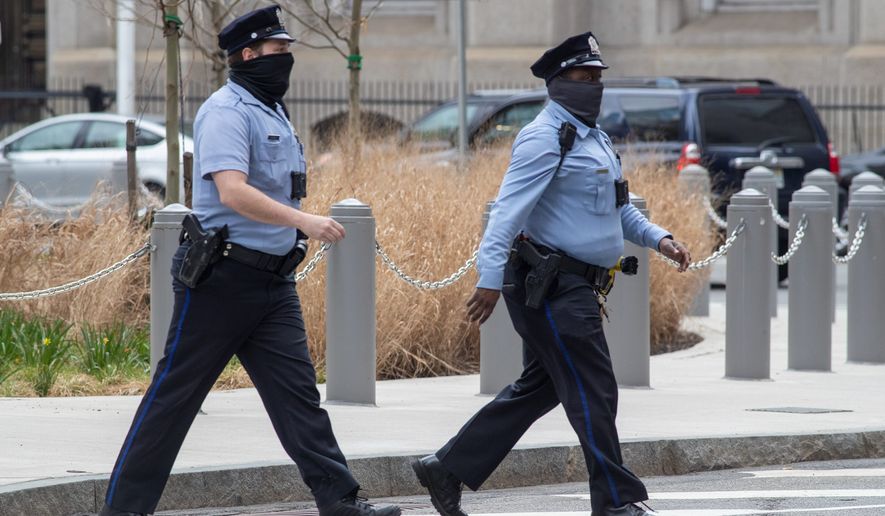Police officers nationwide are turning in their badges at record rates amid budget cuts, policy changes and anti-brutality protests.
An estimated 5,300 officers quit or retired from the New York Police Department last year, 200 or more cops have left the Seattle force, and in the nation’s capital, the union reports that the 3,700-strong Metropolitan Police Department is down 300 badges since the D.C. Council enacted sweeping police reforms last summer.
“Officers are leaving at an alarming rate, and crime is spiking in a lot of different areas,” police union chairman Gregg Pemberton told The Washington Times on Tuesday.
In Baltimore, the department has lost nearly 300 officers since last year, leaving detectives “overwhelmed with their caseload because they, too, are short-staffed,” said the leader of the local Fraternal Order of Police.
“This has a direct effect on the crime fight because there is barely enough time to answer the 911 calls, let alone look for violent offenders,” Mike Mancuso said.
The mass exodus began in the months after the death of George Floyd in Minneapolis police custody last May, sparking protests over racism and police brutality across the nation, along with calls to “abolish” and “defund” the police.
Paul Beakman Jr., former president of the Fraternal Order of Police Western New York Lodge 103, called the movement to defund police “one of the most ill-thought concepts ever.”
Mr. Beakman told The Times in June that the movement drove him to retire after 35 years of law enforcement service.
“You are going to have forced overtime and tired officers patrolling the streets,” Mr. Beakman said. “You are going to have departments hire candidates that, at another time, they may not consider. All of this is going to create a bigger problem.”
As calls to defund police have grown louder, some local lawmakers have responded with dramatic cuts to police budgets.
In at least nine cities that made large cuts to police funding last year, homicides rose by nearly 68%, according to data analysis by The Times. Even cities like the District, which made relatively smaller, symbolic, cuts to police budgets, recorded significant increases in violent crime.
D.C. Mayor Muriel Bowser’s 2020 budget proposal included a nearly $18 million increase for the Metropolitan Police Department, but the final budget approved by the council represented a reduction compared with the previous year’s budget.
The city of more than 705,000 people recorded 198 killings by the end of 2020, the highest in 16 years.
The police department has under 3,300 rank-and-file officers on duty, which Mr. Pemberton said is the fewest in decades.
“These numbers … they’re headed towards catastrophic,” he said. “Officers are getting — they’re getting tired, they’re getting worn out, they’re getting exhausted.”
As officers are continuing to hang up their handcuffs, D.C. crime statistics as of Tuesday show homicides in the city are up 35%, from 49 killings to 66 over the same period last year.
Most of the officers who have left since last year cited the D.C. Council’s emergency police reform and justice legislation passed in the summer, he said.
Unless the council changes some of the provisions, “people are going to continue to leave this department and crimes are going to continue to soar,” Mr. Pemberton said.
“And that’s not right because, you know, who’s suffering the most is our most vulnerable neighborhoods, and typically, those are minority neighborhoods,” he said. “And so people are being victimized — or homicides and shootings and rapes and robberies [are occurring] every day — and these communities, and these people don’t feel safe.”
• Jeff Mordock contributed to this article, which is based in part on wire service reports.
• Emily Zantow can be reached at ezantow@washingtontimes.com.




Please read our comment policy before commenting.